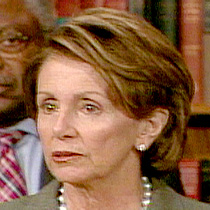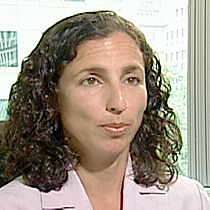2007年VOA标准英语-US Ethics Reform - Is New Law Enough?(在线收听)
Washington, D.C.
03 August 2007
The U.S. Senate Thursday decisively adopted a new ethics law that supporters call the most sweeping reform in more than a generation. The Senate voted only two days after the House of Representatives overwhelmingly endorsed legislation that governs the relationship between politics and money in Washington, D.C. VOA'S Jim Fry reports.
 |
| House Speaker Nancy Pelosi |
At the U.S. Capitol, power often intersects with money. Lobbyists who need access give campaign money to lawmakers facing reelection. Critics say disgraced lobbyist Jack Abramoff - now in prison after a corruption probe - is the symbol of an era in which big money led to abuse.
Long time House Republican leader Tom DeLay resigned amidst allegations involving ties to Abramoff. Republican House member Randy "Duke" Cunningham last year pleaded guilty to accepting a bribe as did another Republican colleague Bob Ney. In June, Democrat William Jefferson of Louisiana pleaded not guilty to charges he took illegal payoffs.
Congressional scholar Norm Ornstein says the Congressional ethics legislation expands disclosure by lawmakers and lobbyists. "This is a big step in the right direction," says Ornstein.
Lobbyists must report when they bundle large sums of campaign cash for lawmakers.
Gifts and free travel from lobbyists are banned.
Members of Congress also must disclose so-called earmarks, spending items inserted into law by individual lawmakers sometimes seeking to reward campaign contributors.
As the Senate gave overwhelming approval, some reformers claimed victory. "The result is a bill that by any measure must be considered landmark legislation," said Democrat Russ Feingold.
But even as Congress moved toward ethics reform this week, the FBI raided the Alaska home of a prominent Republican senator. Investigators are probing Ted Stevens' ties to an oil services contractor who pleaded guilty to bribing state lawmakers. The contractor oversaw a project to renovate Stevens' home.
In the Senate, leaders of both parties gave comfort to their colleague, among them Democratic leader Harry Reid and the top Republican, Mitch McConnell. "Senator Stevens has four decades of service in the United States Senate," noted McConnell.
Some Senators claim the new ethics law will still allow leaders to hide earmarks from the public. "What this bill does is create a lie," said Tom Coburn of Oklahoma. "That is what it is. It is not anything less than that."
 |
| Lawyer Melanie Sloan |
Democratic leader Harry Reid promised the Senate would fix any shortcomings in the new ethics law, but the American Enterprise Institute's Norm Ornstein says all the rules and laws will never be enough.
"You are never going to solve a corruption problem when you have a place that is full of money and power," says Ornstein.
Watchdogs worry a new ethics law - even though imperfect - will reduce the pressure on Congress to continue the cleanup.